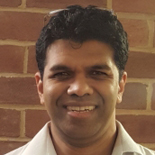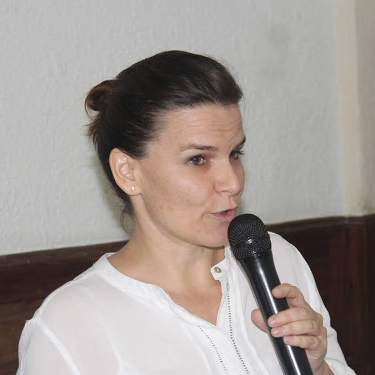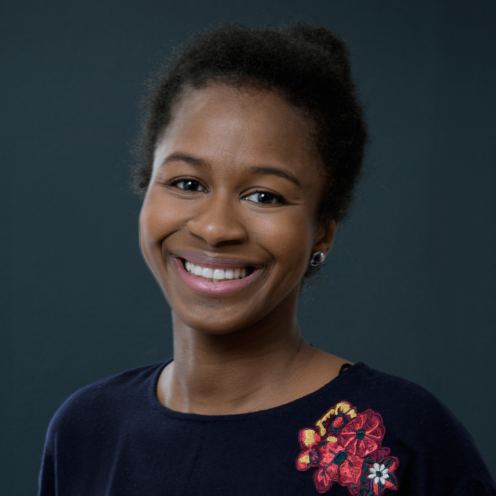Event Summary
Speakers
- Rashmin Gunasekera, World Bank
- Katarina Mouakkid Soltesova, UNDRR
- Assia Sidibe, ARC
- Moderator: Cecil Nartey, Programme Coordinator of the Africa Disaster Risk Financing Programme (ADRiFi)
Description
Thursday November 21, 10:30 – 12:00, Room 3
Probabilistic (catastrophe) risk models enlarge the scope of risk assessments traditionally carried out based on historical experience. It allows to estimate expected losses resulting from adverse natural events that could still not have been experienced in the past. (Catastrophe) risk modeling techniques were originally developed by the international (re)insurance industry to assess the risk on portfolios of underwritten assets (e.g. buildings) and are increasingly being used by governments to analyze their country’s exposure to adverse natural events.
Typically, catastrophe risk models comprise the following components: This session will present the Exposure Module, the Hazard Module, A Vulnerability Module. Convoluting the information contained in the three above-mentioned layers allows to calculate the overall economic losses expected for selected perils. The main outputs of probabilistic catastrophe risk models are diverse and could be used in different applications: financial metrics representing the annual average losses, probable maximum losses as well as the spatially disaggregated probabilistic distribution of impact on the different components of the exposure model of interest in a given period – traditionally in a year time.
Speaker bios
 Rashmin Gunasekera Rashmin Gunasekera is a Senior Disaster Risk Management Specialist at the World Bank in Washington DC, focusing on disaster risk assessment and risk financing within the Social, Urban, Rural and Resilience Global Practice, specifically in the Latin American and Caribbean region. He has over 15 years of work experience in disaster risk quantification extending to the public sector, re/insurance industry and academia. He has also presented and published innovative research and operations papers on Disaster Risk Management widely. Prior to joining the World Bank in 2012, Rashmin was Divisional Director of a global reinsurance intermediary and a coordinator of the Willis Research Network, the world’s largest collaboration between public science and the financial sector. He currently holds an honorary lectureship at University College London (UCL) and has a MPhil in GIS and Remote Sensing (Uni. of Cambridge, UK) and a PhD in earthquake seismology (Uni. Of Durham, UK).
Rashmin Gunasekera Rashmin Gunasekera is a Senior Disaster Risk Management Specialist at the World Bank in Washington DC, focusing on disaster risk assessment and risk financing within the Social, Urban, Rural and Resilience Global Practice, specifically in the Latin American and Caribbean region. He has over 15 years of work experience in disaster risk quantification extending to the public sector, re/insurance industry and academia. He has also presented and published innovative research and operations papers on Disaster Risk Management widely. Prior to joining the World Bank in 2012, Rashmin was Divisional Director of a global reinsurance intermediary and a coordinator of the Willis Research Network, the world’s largest collaboration between public science and the financial sector. He currently holds an honorary lectureship at University College London (UCL) and has a MPhil in GIS and Remote Sensing (Uni. of Cambridge, UK) and a PhD in earthquake seismology (Uni. Of Durham, UK).
 Katarina Mouakkid Soltesova Katarina Mouakkid Soltesova is the Risk Knowledge Programme Management Officer at the Africa Regional Office of the UN Office for Disaster Risk Reduction (UNDRR). UNDRR’s risk knowledge portfolio comprises activities related to the development and promotion of country-level risk profiles, currently in collaboration with the technical-scientific partner the CIMA Research Foundation. UNDRR promotes the use of risk information in prioritizing resource allocation and advocates for the mainstreaming of DRR in national budgeting cycles. UNDRR supports Member States in the development and maintenance of national disaster loss inventories using the DesInventar-Sendai methodology and advocates for the development of national and regional risk information systems, including those focused on preparedness and trans-boundary risk management. Katarina has an Engineering Doctorate in community-based urban risk management.
Katarina Mouakkid Soltesova Katarina Mouakkid Soltesova is the Risk Knowledge Programme Management Officer at the Africa Regional Office of the UN Office for Disaster Risk Reduction (UNDRR). UNDRR’s risk knowledge portfolio comprises activities related to the development and promotion of country-level risk profiles, currently in collaboration with the technical-scientific partner the CIMA Research Foundation. UNDRR promotes the use of risk information in prioritizing resource allocation and advocates for the mainstreaming of DRR in national budgeting cycles. UNDRR supports Member States in the development and maintenance of national disaster loss inventories using the DesInventar-Sendai methodology and advocates for the development of national and regional risk information systems, including those focused on preparedness and trans-boundary risk management. Katarina has an Engineering Doctorate in community-based urban risk management.
 Assia Sidibe Assia Sidibe joined the ARC team in 2014 and currently serves as the Head of Government Services for West and Central Africa, in which she is responsible for managing the ARC operations in those regions, and the partnership with the African Development Bank Group. Prior to joining the ARC Agency, she worked at the French Development Agency in Johannesburg, on capacity building and municipal infrastructure financing. She has also worked for KPMG’s Audit and Advisory in Paris, where she was a consultant and an auditor in the insurance department. A native of Mali, Assia holds a BSc in International Business from the École supérieure du commerce extérieur of Paris-La Defense and a master’s degree in Finance and Strategy from Sciences Po Paris. Assia is a native French speaker and is fluent in English. Assia is an Aspen Institute New Voices fellow.
Assia Sidibe Assia Sidibe joined the ARC team in 2014 and currently serves as the Head of Government Services for West and Central Africa, in which she is responsible for managing the ARC operations in those regions, and the partnership with the African Development Bank Group. Prior to joining the ARC Agency, she worked at the French Development Agency in Johannesburg, on capacity building and municipal infrastructure financing. She has also worked for KPMG’s Audit and Advisory in Paris, where she was a consultant and an auditor in the insurance department. A native of Mali, Assia holds a BSc in International Business from the École supérieure du commerce extérieur of Paris-La Defense and a master’s degree in Finance and Strategy from Sciences Po Paris. Assia is a native French speaker and is fluent in English. Assia is an Aspen Institute New Voices fellow.
Cecil Nartey is the Programme Coordinator of the Africa Disaster Risk Financing Programme (ADRiFi) at the Africa Development Bank. He is leading the development and implementation of the Bank’s flagship programme in Disaster Risk Management, working with AfDB regional member countries (RMCs) to enhance the resilience and response to climate shocks in the respective countries. Key components of the programme are capacity building and risk transfer, including parametric insurance. He is also leading the piloting of activities in de-risking agricultural finance for smallholder farmers in four African countries. He has dual nationality of Ghana and Britain, and holds MSc and PhD in agricultural economics from the University of Reading in England. Prior to joining the Bank 12 years ago he had worked with OXFAM GB, UNIDO and CARE USA.
